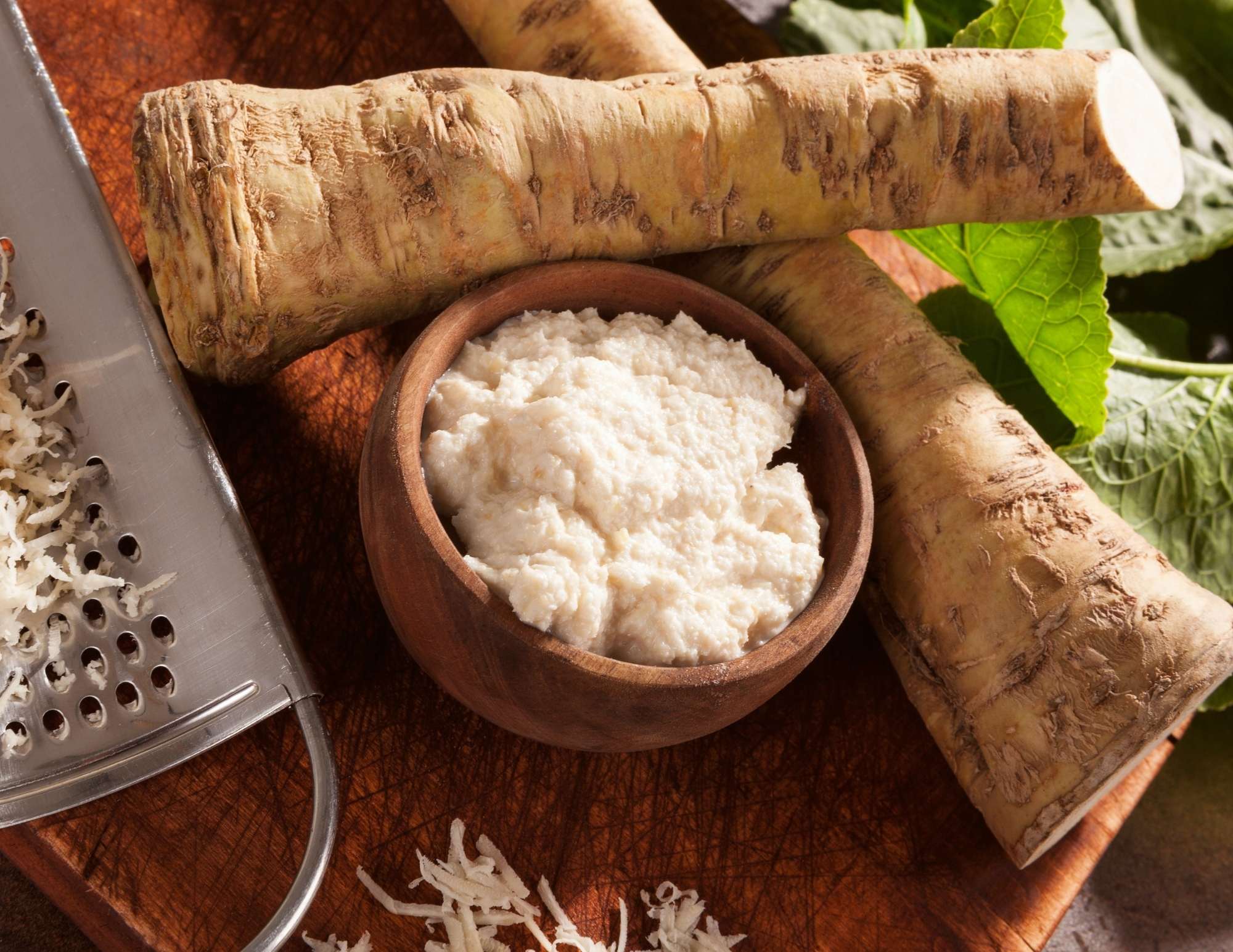Europe hooked on Hungarian horseradish and new local gin

Whether you have a Hungarian family background or just like to enjoy the different tastes of the world, you will always find something delicious when it comes to Hungarian food and drinks. Many people’s knowledge of the country’s traditional cuisine may not go beyond goulash or chicken paprikash even though Hungarian dining has much more to offer than that. In this article, we bring you two surprising local delicacies to try. If you like to experiment with Hungarian flavours, give this savory horseradish purée and Hungary’s new gin a shot!
According to Storeinsider, Hungary is considered the largest grower and producer of horseradish in the EU, even though the majority of the crops are harvested for export purposes. Due to its distinctive aroma, Hungarian horseradish is commonly mixed with other countries’ domestic products in the processing plants in order to enhance their flavour. However, Hungarian horseradish plantations are big enough to meet both foreign and local demands and provide consumers with fresh supplies all year round.
The Hungarian Chamber of Agriculture (HCA) encourages customers to choose premium quality local produce when shopping for the upcoming Easter holidays
In 2021, domestic horseradish lands were estimated to stretch out over a nearly 1267-hectare area in total. Harvesting processes last, in general, from October well into March, until the beginning of the next seeding period.

Hungary as horseradish world capital
Based on recent data, the country produced more than 12 tons of horseradish in the last season which takes up approximately half of the global production. This plant has intense water needs, therefore, the latest yield turned out to be smaller in size due to the unusual drought of the past weeks, however, the Hungarian produce still managed to outperform its foreign counterparts. Thanks to the periodic harvest and adequate storage technique, the Hungarian yield covers not only local but also global needs until the next produce. Even though the level of domestic consumption is also significant, the majority of the fresh produce is exported to the UK, Germany, Poland and the Czech Republic. Horseradish is an indigenous plant in Hungary. Back in the day, it was cultivated all across the country but nowadays the main region where it is produced is Hajdú-Bihar county, in Eastern Hungary. The land provides work for many local families all year round.

True antioxidant powerhouse
Horseradish is a quintessential ingredient of the Easter festive menu. The grated root can be used fresh, or it can be dried or powdered. You will often find horseradish added to condiments such as mustard or mayonnaise to lend them an extra bite. Horseradish sauce may simply be grated horseradish in vinegar, or it can be a creamy version.
This beloved local delicacy makes a great companion to savoury fermented vegetables such as cucumber, beetroot, cabbage, and minced paprika, as it brings out their flavour.
Horseradish is rich in allylisothiocyanata, a pungent chemical that gives its distinctive sharp flavour. It is also present in mustard and onion, which is what gives you a runny nose and watery eyes. Horseradish has a high vitamin C content, besides it is naturally antibacterial. It has been shown to kill harmful bacteria and microbes. Horseradish can also potentially cure or mitigate the symptoms of kidney and urinary tract infections, chronic cough and bronchitis.
Read also: Have you tried the Hungarian Wax Pepper?
Hungarian gin renaissance
This originally English alcoholic beverage is experiencing an unprecedented renaissance in Hungary, and some bars in the capital have taken gin and tonic to an almost artistic level. In addition to the special gins from all over the world, the Hungarian market also has a lot to offer, as in recent years, many new Hungarian gins have occurred, such as the internationally award-winning Opera, the popular Búzavirág brand, and even some pálinka distilleries, not to mention the Agárdi Distillery. However, we have a new player on the field that is outstanding in every aspect. Gay Hussar has already bagged two prestigious international awards, a golden medal at The Spirits Business and a silver one at the IWSC Spirit 2022 competitions before we could even savour it in one of our favourite local bars. The new Hungarian invention has a classic spicy flavour, therefore, we can enjoy it on the rock without mixing it with tonic. According to Storeinsider, it is not only its groundbreaking concept but also the intriguing story of the gin that makes Gay Hussar so exceptional.

The story behind Gay Hussar
The gin was named after Tatárjárás (Gay Hussar), the famous composer Emmerich (Imre) Kalman’s epoch-marking operetta which he composed in a cheap attic so he would not be disturbed, while it also pays tribute to the Soho-based Hungarian restaurant in London, which bears the same name.
Opened in 1953, Gay Hussar was a popular meeting point among politicians, writers, poets and high-class socialities.
The late owner Victor Sassie operated the restaurant for 34 years. He was a one-off character – and not surprisingly, considering his origins. Sassie was born to a Swiss father and a Welsh mother and became an honorary Hungarian while served his apprenticeship at the Gundel restaurant in Budapest in 1932. During World War II, he joined the secret service where he made use of his Hungarian language skills. After the war, he opened his restaurant with his Hungarian wife, Erszébet, even though rumours had it he was homosexual. The legendary eatery served traditional delicacies such as roast goose and smoked Hungarian sausage, its appealingly long and meat-heavy menu never varied

What it tastes like
In regard of its classification, Gay Hussar is a natural sipping gin that is produced by using a single-shot technology. For those who are not fluent in gin, single-shot means that once the botanicals have been distilled, the resulting spirit is diluted with water, in order to reach the alcoholic strength required for bottling. In the case of Gay Hussar, the spirit is boiled to 96 percent and then further diluted and infused with herbs. Based on Hype&Hyper’s taste test, the Hungarian gin has a grapey finish with notes of juniper, coriander, angelica, laurel, lemon peel, sea buckthorn, almond, orris root and linden. The list might seem overwhelming at first, but that is what gives the gin its unique Hungarian character. Gay Hussar is already featured in the bars of a number of Budapest-based entertainment venues such as Telep, Nappali and Parlé, and soon will be available in iDrinks webshop as well.
Read also: Hungarian gin: a new alternative to pálinka?
Source: storeinsider.hu, hype&hyper.com








Gin will NEVER replace a quality palinka !!! EVER!!!